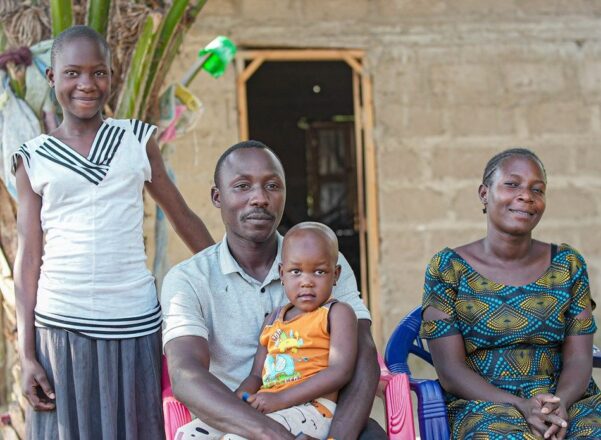Strengthening family-based care
The National Alternative Care Technical Working Group was established by the Government of Tanzania to bring together relevant government departments and civil society organisations to progress care reform within the country.
Led by Railway Children Africa, members of the working group have worked together with members of Familia Kwa Watoto Wote Alliance – a national coalition formed to influence systems and practices to ensure all children are raised in a loving family – to organise this week’s event.
The workshops, which are taking place on 11th-13th June, will enhance the group’s knowledge of family-based care models and deinstitutionalisation strategies to better meet the needs of children and their families. We have brought speakers from across the region in Uganda, Childs I Foundation, and in Rwanda, Hope and Homes for Children to talk about how care reform has progressed in their countries, together with a range of speakers from across Tanzania, all with experience of supporting children in family-based care.

Roadmap for Care Reform
In Tanzania, thousands of children are struggling to survive on the streets, working in abusive situations away from their families, or living in residential care homes where they are often deprived of their basic needs. Tanzania has developed a roadmap to advance the country’s care reform agenda which will be reviewed during the workshops, with all attendees expected to make a commitment to support the government to deliver. Lessons will be learnt from our colleagues in Uganda and Rwanda, that have had significant success transitioning from institutional care to family-based systems.
Workshops sessions will include topics such as defining care reform and outlining the importance of a family environment for children’s development and wellbeing.
Examples of care reform practices in Tanzania will be shared among the taskforce, including Pamoja Leo’s family support models for vulnerable mothers with newborn babies, Railway Children Africa’s family strengthening and reintegration model, and the Social Welfare Department’s family-based alternative care options.
Last year, Railway Children Africa supported research by Citizens 4 Change on the lived experiences of children in institutional care in Tanzania and the impact it has had on their lives. The workshops will be used to present findings of the care-leavers research as well as sharing testimonies from care-leavers around the East Africa region.
Peter, who grew up in a children’s home in Kenya, will be sharing his experiences with the working group and how he is advocating for a shift towards family-based care in the country. Peter said:
“Children want to be raised in places where they are loved, where they have consistent carers and where they get to experience the support of a family.
“Through groups like the Kenya Society of Care Leavers, we were able to request the government to think about how they can change the way they treat their children. As a result, we currently have a care reform strategy in Kenya which has given children’s homes a timeframe to change the way they do things and we are now running programmes for foster care. The country also has a new Children Act.
“Had it not been for the voices of people like myself, it could have been very hard for the country of Kenya to be able to make these big steps to change the way children are raised.”
Railway Children Africa’s programmes have had a family-first approach for several years, with a focus on reintegrating vulnerable children with their birth parents, or extended family members through kinship care, or if this isn’t possible, more recently with alternative family-based care through fit persons, foster care and adoption.
Lydia Michael Kishimba, Advocacy Officer at Railway Children Africa said:
“We believe all children should have the same rights and opportunities, including the right to a nurturing family environment. Railway Children Africa is proud to be collaborating with the Government of Tanzania as part of the National Alternative Care Technical Working Group to support the country’s care reform agenda.
“The workshops will help to provide a clear roadmap to progress interventions within the country to provide a supportive and protective system for vulnerable children through family-based care.”
Find out more about Railway Children Africa’s work here: www.railwaychildrenafrica.org